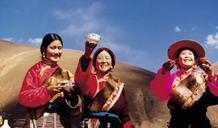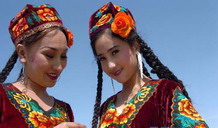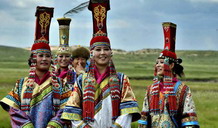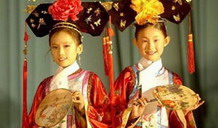Custom-made culture
This belief flows from the powerful undercurrents of mysticism that determine the course of life in Xijiang, whose first settlers are said to have arrived some 600 years ago.
Local lore holds that one must undress upon encountering a snake shedding its skin, for instance, and that illnesses are cured by pouring fowls' blood on the sacred bridges found outside every home.
Another testimony to spirituality's importance in Xijiang is the zangtou, or shaman, who is responsible for deciding the planting and harvest season dates, and auspiciously starting festivals by sacrificing a pig.
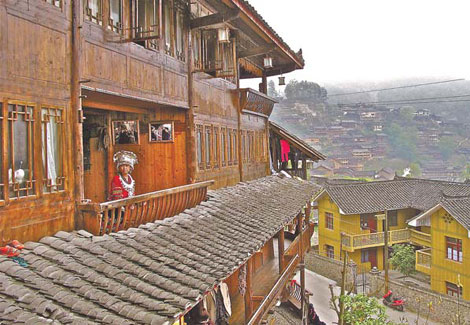
The title is passed from father to the youngest son, but villagers can vote out a bungling zangtou or vote in a promising successor if the sorcerer sires no male offspring.
Xijiang's zangtou Tang Shoucheng says he is happy to have a 9-year-old boy to inherit his station.
Tang doubles as the local math teacher, so, in addition to teaching the community's youth number tricks, he's also teaching his son secret spells long passed down their lineage.
Tang says he's happy local tradition has not only survived modernization in Xijiang but also is being presented to the world at the Shanghai World Expo's Guizhou Pavilion. He believes the Miao should not only perpetuate their customs but also share them with the others.
"I want to go to university to study history, culture and tourism," he explains.
"After graduation, I hope I can return to Xijiang to contribute to Miao customs' preservation and advancement."
Editor: Feng Hui



